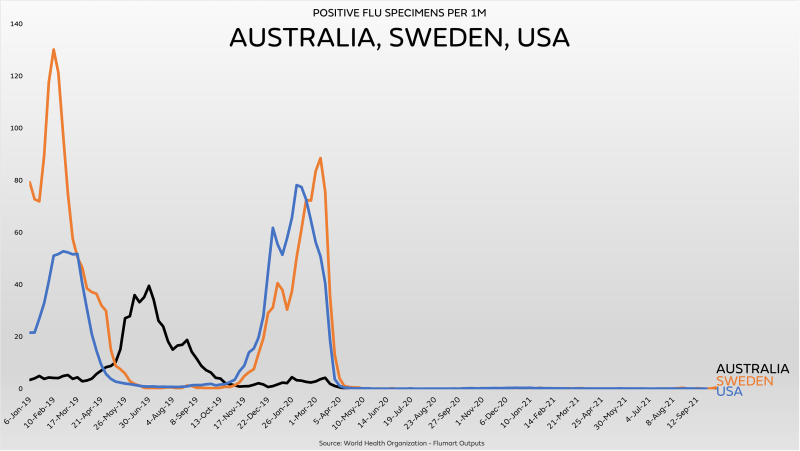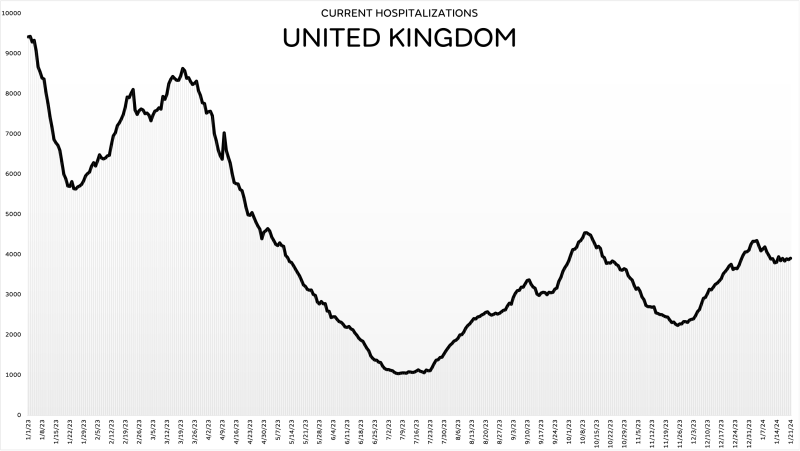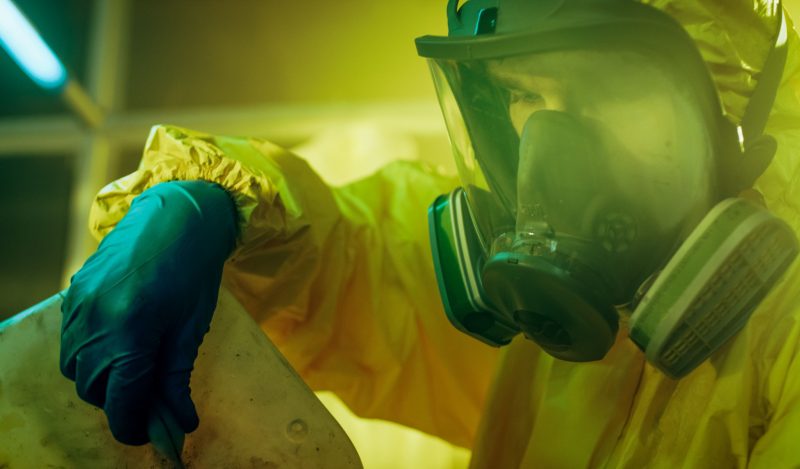For those of us on the side of sanity, reason, and data-driven evidence, the refusal of Covid extremist “experts” to admit mistakes has been a constant, oppressive source of frustration.
The names of those involved in creating a false consensus based on inaccurate information have become an infamous reminder of the dangers of excessive reliance on a few politically motivated individuals: Anthony Fauci, Francis Collins, Jerome Adams, Deborah Birx, and later entries like Ashish Jha and Vivek Murthy.
There were a host of others who had a significant impact on the rampant spread of indefensible, immediately disproven ideas, mandates, and policies.
Many continue into 2024 to advocate for failed policies, “interventions” that still don’t work, and unnecessary panic. And all with the willing participation of major media outlets dedicated to continuing their preferred narratives. For example, those who support the endless Covid vaccination series over natural immunity.
This week we saw two wildly opposite storylines on Covid narratives that indicate yet again the disastrous incompetence of the “expert” class.
New Variants Mean Same Old Masks
Perhaps the two most popular excuses for the failure of pandemic interventions were lack of compliance and new variants.
The United States was unable to control Covid because not enough people wore masks, even though Sweden had better outcomes with virtually no masking. And South Korea with its masking culture wound up near the top of case rate charts. Not to mention that the flu was eliminated in countries with wildly different mitigation strategies and mask compliance.


Then as new variants predictably emerged throughout 2021 and 2022, the failure of Covid vaccines to control infections and the disintegration of the response in New Zealand, Australia, Singapore, and elsewhere was blamed on the Delta and Omicron variant.
Never mind the absurdity of believing that Covid could be eliminated or controlled permanently if marginally more transmissible variants would lead to essentially unchecked spread.
But the variant panic didn’t stop in 2022. Or 2023. And based on the start to 2024, it’s not stopping this year either.
The Sun, a paper based in the UK, reported on the rise of the JN.1 variant in an article from January 9th, covering what the “experts” in England had expected to happen as a result of a new, more distinct variant emerging around the holidays.
With temperatures plummeting and socialising inside with loved ones over Christmas, experts predict cases could continue to rise throughout January.
Professor Peter Openshaw, a virus expert at Imperial College London, told The Sun Health: “We’re going to see quite a major surge in infections over the coming weeks – the wave could be bigger than anything we’ve seen before.”
He said in a bid to help stop the spread, Brits who haven’t received a Covid booster this winter should consider wearing masks in public again.
“To help stop the spread, those who haven’t had the Covid booster should consider wearing face masks in public places, like on trains, when shopping and at large events,” he said.
A “virus expert” from Imperial College, the same Imperial College where the notorious Neil Ferguson model originated, made the prediction that “we’re going to see quite a major surge in infections” with a wave that “could be bigger than anything we’ve seen before.”
How would we ever stop this insurmountable wave? That would be by wearing masks and getting booster doses, of course!
Another “expert,” Professor Christina Pagel of University College London, predicted that the JN.1 wave would be similar or larger than Omicron: “I am sure this wave will rival the first two Omicron waves in 2022 and might even exceed them,” she said.
While another professor of virology, Jonathan Bell, from the University of Nottingham and Liverpool School of Tropical Medicine, did say he wasn’t that concerned about the impacts on JN.1, he did also tell The Sun that the rise in JN.1 cases is a “sign of things to come.”
“New variants will continue to evolve, replace pre-existing variants causing major outbreaks of infection,” he said.
So now that we’re officially past January, how did these predictions age?


Not well!
On January 9th, the rolling 7-day average of newly reported Covid cases in the United Kingdom was 938. By January 17th, just over a week afterwards, it had dropped to 750. Eminently qualified “experts” from some of the most prestigious universities in the world predicted a surge from JN.1 that would equal or exceed Omicron, with the promise of the ensuing weeks after January 9th to be an unmitigated disaster of unchecked infections, particularly because of the Christmas/Boxing Day/New Year’s holidays and the traditional gatherings.
Instead, the cases dropped 20% in just one week after their doomsday predictions were made.
Every. Single. Time.
Obviously the UK, and all countries, are in a very different testing environment than when Omicron hit in late 2021. But to compare the JN.1 “surge” to Omicron is laughable by any measure.
In early 2022, the UK, despite mask mandates and vaccine passports in many locations, was reporting nearly 160,000 new cases each day.


While, again, testing has been widely diminished, the current 7-day average is around 750. This is likely lower now given that the dashboard hasn’t been updated in several weeks.
It’s a similar story with hospitalizations too. Even in January 2023, a year after the Omicron peak, there were nearly 10,000 people in the hospital with a positive Covid test.
This January it’s around 3,900, and remaining flat to trending downwards, despite the JN.1 “surge.”


It’d be easy to say that it’s difficult to imagine a series of predictions aging worse than the ones made by virology and infectious disease experts about the upcoming, inevitable, overwhelming “surge” in the UK in January…if we hadn’t already seen the “experts” make similarly hyperbolic and inaccurate predictions periodically since 2020.
Speaking of…
Zero Covid Goes Down The Drain
Professor Devi Sridhar, one of the top advisors to the Scottish Government on Covid during the early part of the pandemic, made her fame in 2020 by being a fanatical “zero Covid” advocate.
An absurd, nonsensical idea that had no chance of long-term success considering the virus had been spreading globally long before anyone realized it, Sridhar nonetheless had outsized influence on policy making in Scotland, and unfortunately with global impact from a massive social media presence and media promotion.
And now she claims that she regrets saying “zero Covid” at all.
The Daily Mail reported on Sridhar’s comments at the UK’s Covid inquiry, a set of hearings on the country’s pandemic response. She told the inquiry at her recent appearance that her many references to “eliminating” the virus were actually all a big mistake.
“This was a mistake I made using the word ‘elimination’,” she said, according to the Mail, while claiming that “maximum suppression” would have been more accurate.
However Sridhar frequently used the term “elimination” in public communications, as catalogued on Twitter by Anthony LaMesa.




In another post the next week, Sridhar said “The best & safest way to get schools back full-time is to stop community transmission. The fastest way to get restaurants & city centres full again is to stop community transmission. A Zero Covid approach is the ‘least worst’ path forward. And it is feasible.”
It was not feasible.
By summer 2020, we knew that masks didn’t stop respiratory viruses, especially Covid. We knew that schools didn’t need to close, because of Sweden’s example. We knew that transmission was airborne, meaning that eradication and elimination was impossible. We also knew that there had already been and would most assuredly continue to be massive harms from the closures and mandates enacted in a futile, feeble attempt to control the uncontrollable. Sridhar forcefully advocated for “zero Covid” anyway, and was quite clear in her definition of such efforts as meant to eliminate the virus from local communities.
She of course had no plan to continue that “elimination” permanently.
Yet now it was apparently all a poor choice of words. How convenient!
While it’s nice to see some level of awareness and acknowledgement that these absurdist ideas were wrong, Sridhar simply won’t tell the whole truth: none of her preferred policies had any chance of working. Instead, she dances around her own failures with semantics.
But both of these stories; Sridhar and the JN.1 panic, indicate what we’re likely to experience as the future of Covid. Those who were responsible for incalculable damage will continue to skate scot-free, while the cycle of unnecessary panic, inaccurate predictions, and the call for more masking rears its ugly head every few months as new variants emerge.
Although it’s frustratingly predictable and infuriatingly obvious, best to prepare for a whole lot more of it.
Republished from the author’s Substack
Join the conversation:


Published under a Creative Commons Attribution 4.0 International License
For reprints, please set the canonical link back to the original Brownstone Institute Article and Author.









